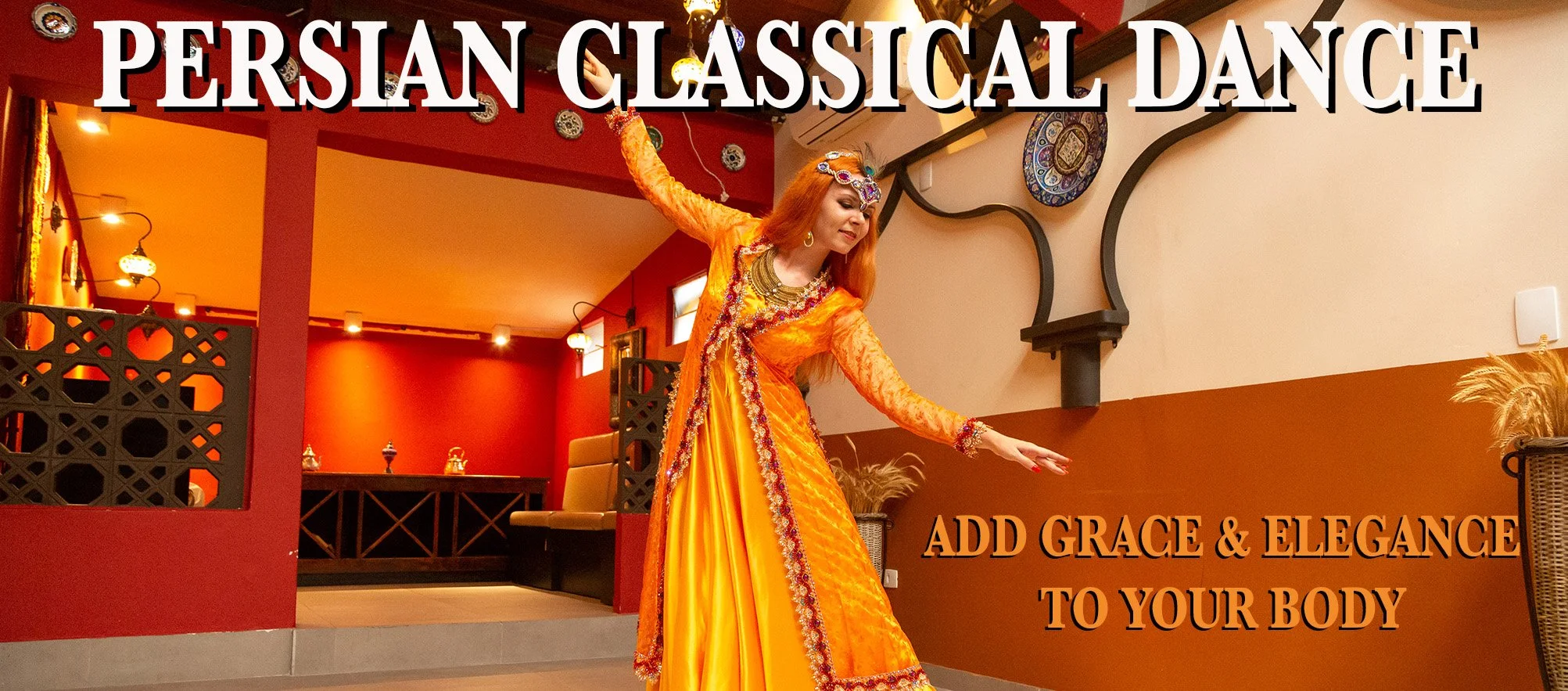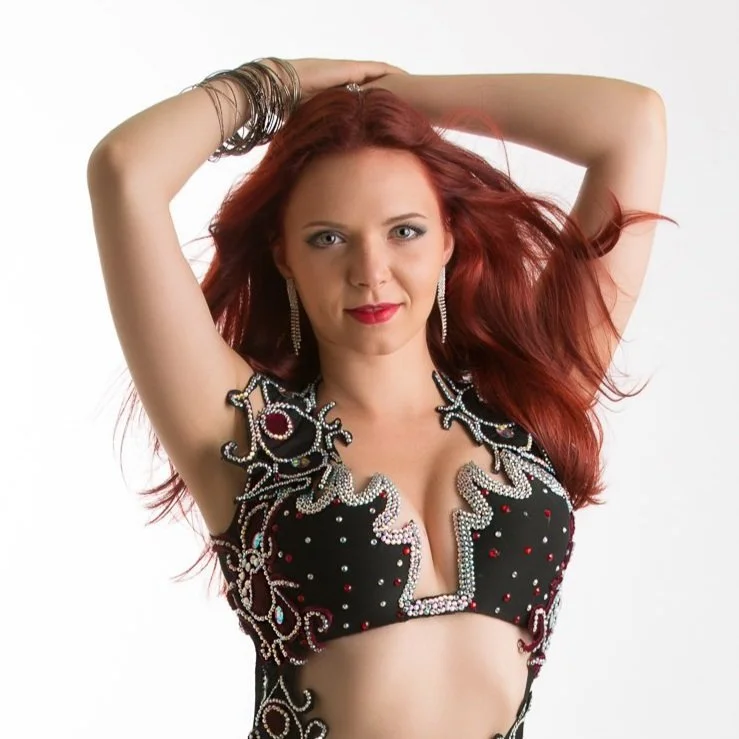Persian Belly Dance: Does It Exist?
Have you ever heard this combination of words: Persian belly dance. It used to drive me crazy, especially when a performance request was by Iranians. What do you mean by it? Let’s figure it out.
Have you ever heard this combination of words: Persian belly dance. It used to drive me crazy, especially when a performance request was by Iranians. What do you mean by Persian belly dance? Let’s figure it out.
There is a regional folk dance from the south of Iran called Bandari, and it is often referred to as Persian belly dance. The reason is quite obvious: it has a lot of shaking movements (both hips and shoulder shimmies), twists, some hip circles, and a bit of hair tosses. It can slightly remind the vocabulary of belly dance, although to compare them is similar to saying that belly dance and Bollywood are the same styles, lol.
But even more intriguing is when people do actually request belly dance. It took me a long time to figure out what Iranians from the local Toronto community call as Persian way of belly dancing. I can easily imagine Egyptian, Turkish, Lebanese or Greek styles. But how would a Persian belly dance style look like? Lots of arm undulations? Not really…
After working with the local Persian community for the past five years I realized that by requesting Persian belly dance people simply expect to feel the same energy as Bandari: upbeat and shaky, lol. You may ask: what about the music? - Just be aware which Arabic songs are popular among Persians. Examples: Shih Shak Shok, Bitl El Shalabiya, anything from Nancy Ajram.
Also, many Irainians may use this term to refer to pre-revolution cabaret dancers, for instance Jamileh. Take a look at the first videos below and notice occasional Persian triple steps, and arms movements that Jamileh uses in her dancing. Also, the second video shows her Baba Karam dance, but notice how many belly dance movements are added there too.
Are there any elements of Persian dance that can be incorporated into belly dance? Oh yes! And the major one is ARMS It’s not even about any specific movements, although it exists too. But mainly it’s about the fluidity of arms.
I started learning Persian dance intrigued by the elegant arm technique. Today I brought many of those elements to my belly dance style. You may say: it’s not pure Egyptian style. Yes, I agree. But does it always have to be? What about Turkish or Lebanese styles? They also incorporate a lot of arm movements in a completely different way than the Egyptian style.
Check out my online course on Classical Persian Dance | Add Grace & Elegance to Your Body.
Always remember that clients often don’t know what exactly they want, and may communicate their ideas in weird terms. Your task as a performer is to solve this puzzle, and deliver a show that will meet both their expectations, as well as your artistic standards.
If you enjoyed this article, don’t forget to like and share it! :)
Author and model: Iana Komarnytska
Photographer: Pedro Bonatto
YOU MAY ALSO LIKE:
LISTEN TO THE BELLY DANCE LIFE PODCAST:
About Iana
Iana Komarnytska is a professional dancer, teacher, choreographer, and passionate content creator helping dancers navigate their dance lives.
She is a graduate from the professional dance program at York University (Canada), host of the Belly Dance Life podcast, creator of the Iana Dance Club, author of numerous articles, and winner of Star Bellydancer Canada 2014 among other international competitions.
Along with belly dance, Iana performs and teaches Persian Classical and Turkish Romani dancing. She is the first choreographer to start using Triple Isis wings, and since 2012 this is one of her style signatures.








I constantly receive questions about what kind of portfolio a belly dancer needs in order to start working at local gigs, so I've decided to put here a checklist of essential portfolio components that I used in my daily dance work.